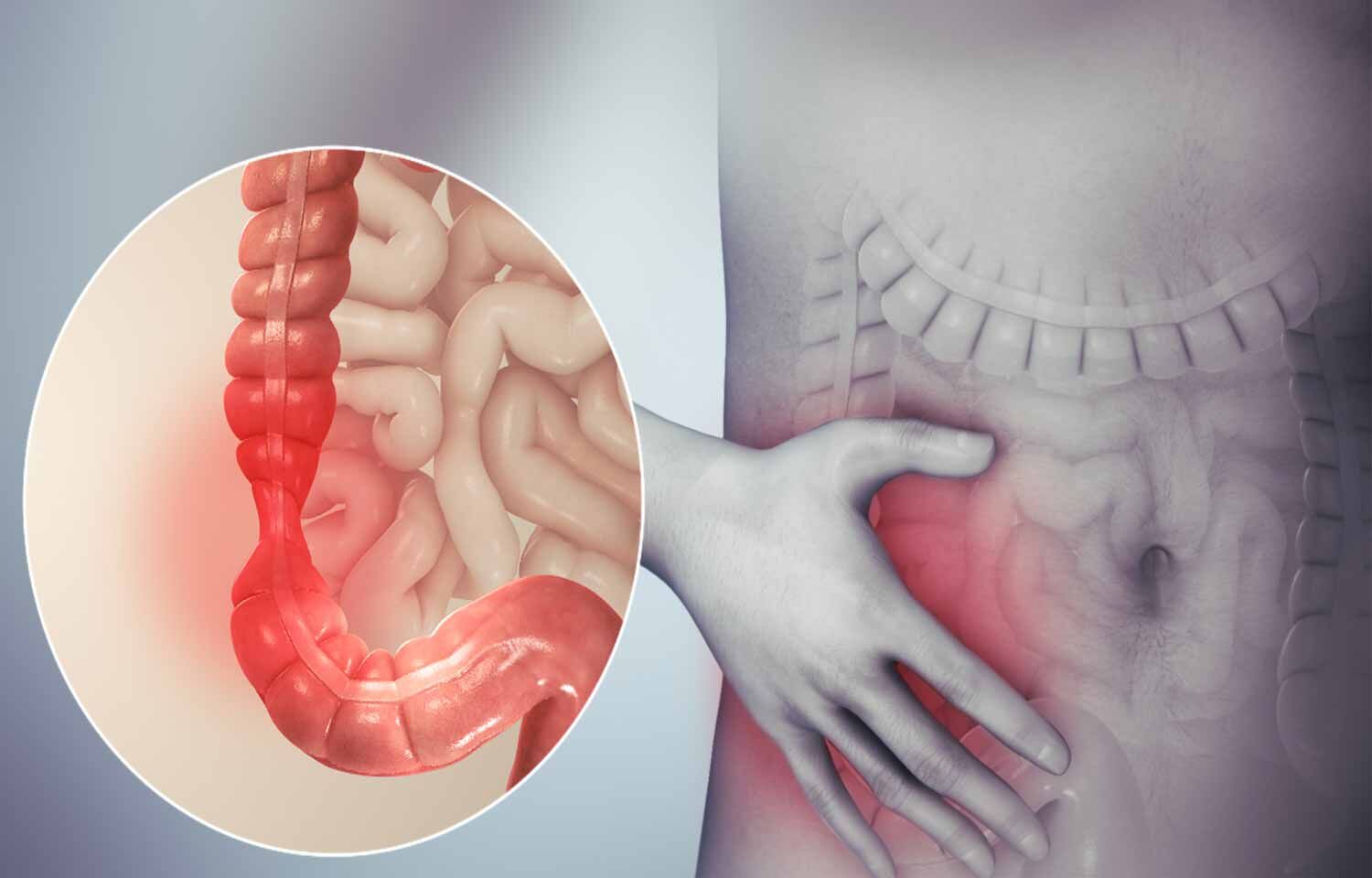FUNCTIONAL PAIN SYNDROME
When a comprehensive investigation is incapable in explaining a particular symptom or cluster of symptoms and does not identify an organic disease these symptoms are described as functional pain disorder or syndrome. Functional gastrointestinal disorders are most common among other disorders like fibromyalgia, interstitial cystitis, and chronic daily headaches which are also considered functional.
These are encountered by primary care professionals as well as specialists on a daily basis. The pain caused in functional disorder is constant, nearly constant, or at least frequently recurring without any underlying medical condition.
The functional pain syndrome includes vexing and most common chronic pain conditions like fibromyalgia, irritable bowel syndrome, low back pain and temporomandibular disorder. Functional pain is known to reduce quality of life, decrease productivity in relation to work, generate considerable health care costs, and might increase mortality.
It is difficult to treat functional pain. Physicians and specialists prescribe multiple treatments followed sequentially or in combination to help provide pain relief. Unfortunately, even this strategy sometimes would result in failure. Due to failure the physicians are left frustrated, and patients are left dissatisfied due to chronic pain and unremitting symptoms.

FIBROMYALGIA
Fibromyalgia is a common, devastating somatic functional pain syndrome. It is a misnomer as it is not caused due to connective tissue, or of pure muscular nature in pathology. Fibromyalgia is in some cases a genetic basis. Polymorphisms in catechol-O-methyltransferase (COMT) genes are found to be associated with fibromyalgia. There is a relationship between the polymorphism and the tender pressure points that could elicit clinically in the patients suffering from fibromyalgia.
Widespread muscle pain and tenderness are most common symptoms of fibromyalgia which might be accompanied with fatigue and altered sleep, memory and mood. There is no organic cause behind the stimulation of these symptoms. However, some researchers believe that nerve stimulation causes abnormal changes increasing the levels of certain chemicals in the brain and spinal cord that signal pain.
Fibromyalgia can be triggered by numerous reasons like infection, prolonged psychological stress, physical or emotional events.
IRRITABLE BOWEL SYNDROME
This is one of the most common stomach pain that affects the large intestine. The underlying reason for irritable bowel syndrome is not known however it could be triggered due to numerous factors like:
- Muscle contractions in intestine – Contractions that last longer than normal and are stronger might cause gas, bloating and diarrhea. However, weak intestinal contractions cause the slow food passage and lead to hard, dry stools.
- Nervous System – Abnormal signals between the brain and the intestines might cause the body to overreact to changes occurring in the digestive process which results in pain, diarrhea or constipation.
- Severe Infection – Irritable bowel syndrome can develop due to severe bout of diarrhea (gastroenteritis) due to bacterial or a viral infection.
- Stress – The irritable bowel syndrome could be increased due to stressful events.
The symptoms would vary from person to person depending on the underlying condition. The most common symptoms include abdominal pain, cramping or bloating related to passing a bowel movement, changes in appearance of bowel movement or changes in frequency of having a bowel movement.
TEMPOROMANDIBULAR DISORDER
The pain caused in the temporomandibular joint (TMJ) which acts like a sliding hinge, connecting the jawbone to the skull is termed as temporomandibular disorder. The exact reason for the pain is not known. However, it is believed to be affected by factors like genetics, arthritis or jaw injury.
In the majority of cases the pain and discomfort caused due to temporomandibular disorders is temporary and might be relieved with self care or nonsurgical treatments. The pain could be triggered when the disk erodes, moves out of its proper alignment, the joint’s cartilage is damaged due to arthritis or the joint is damaged due to blow or other impact.
- Pain or tenderness of the jaw
- Pain in one or both of the temporomandibular joints
- Aching in and around your ear
- Difficulty or pain while chewing
- Facial pain
- Locking of the joint which makes it difficult to open or close the mouth
- Clicking sound or grating sensation while opening mouth or chewing
Oral splints or mouth guards, pain killers, antidepressants, muscle relaxants and physical therapies are some of the non-surgical treatments for relief. If these do not provide relief, doctors would recommend surgeries like arthrocentesis, temporomandibular arthroscopy, modified condylotomy or open joint surgeries. Injecting botulinum toxin type A (Botox) into the jaw muscles are helpful providing relief in pain while chewing is associated with temporomandibular disorders.
FUNCTIONAL ABDOMINAL PAIN SYNDROME
Functional abdominal pain syndrome or chronic functional abdominal pain is the ongoing presence of abdominal pain. The reason for the pain is not a known medical explanation, and it has the potential to interfere with your daily functioning. This is different from irritable bowel syndrome as there is no change in bowel habits like constipation or diarrhea. Bowel dysfunction is a distinguishing diagnostic criterion of irritable bowel syndrome.
People suffering with functional gastrointestinal (GI) disorders might have a variety of symptoms ranging from painless diarrhea or constipation to pain associated with diarrhea and/or constipation. This happens in severe cases. Less severe or mild condition of abdominal pain is chronic or frequently occurring.
This is not associated with bowel pattern changes or any underlying medical condition referred to as centrally mediated abdominal pain syndrome.
Functional abdominal pain syndrome is caused because of altered sensitivity to nerve impulses in the gut and brain and they would not alter motility in the intestines.

CAUSES OF FUNCTIONAL ABDOMINAL PAIN
Main symptom of functional abdominal pain is unexplained pain which could be associated with bowel disorders. The nerve impulses carrying pain travel from the abdomen to the spinal cord, and then to other areas of the brain. Various different areas of the brain are involved in the sensation of abdominal pain among which one part is concerned with the location and intensity of the pain, while another is concerned with memories or emotions. As a result of this interconnection, the pain is perceived emotionally and physically.
Though there is no specific cause behind functional abdominal pain it could be triggered after infections or events that might stimulate the bowel, after traumatic life events such as death of a loved one, a divorce, or a history of abuse or during times of added stress the symptoms could worsen.
TREATMENT OF FUNCTIONAL ABDOMINAL PAIN
The goal of treatment is to help gain control over the symptoms as well as improve daily function instead of totally eliminating symptoms. Doctors would prescribe medicines to combat pain like painkillers (NSAIDs or opioids), antidepressants, anticonvulsants etc, which not only provides relief in pain but also decreases other symptoms like muscle relaxation or depression (due to chronic pain).
Other treatments which could be helpful include:
- Stress management – This includes relaxation techniques or meditation. This would include techniques to increase focus and attention on something other than the pain.
- Hypnosis – Helpful in gaining focus and attention away from the pain. Positive suggestions could change ways of how the patient thinks or reacts.
- Cognitive-behavioral therapy – Important in changing non-helpful thoughts, perceptions, and behaviors to control symptoms and ease off pain.
OUTLOOK
Functional Pain disorder or syndrome is usually diagnosed when no underlying medical condition explains the reason of pain and its treatment requires equal participation of both patient and the physician.
If you or anyone you know is suffering from functional pain syndrome, our expert providers at Specialty Care Clinics will take care of your health and help you recover.
Call us on (469) 545-9983 to book an appointment with Dr. Rao Kamran Ali.
